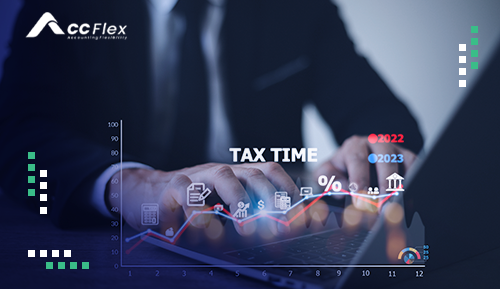
Public finance is the backbone of the state and the secret of its strength. One of its most important components is the tax system, which is a major source of revenue to finance public services such as education and health, as well as to maintain basic infrastructure and achieve the state's economic and social goals. One of the most important taxes in Egypt is income tax, which is levied on the profits of individuals and companies.
What is the concept of taxes?
Taxes are mandatory financial amounts imposed by the state on various economic activities, such as income, expenses, and jobs, whether for individuals or institutions. Taxes are aimed at financing projects and public services provided by the government, such as education, health, and infrastructure, and paying the salaries of employees in government agencies.
Taxes in Egypt are determined in advance by the competent authorities (the Egyptian Tax Authority) based on a certain percentage, and include individuals, whether employees or end consumers, and commercial companies registered in Egypt.
What are the types of taxes in Egypt?
The concept of taxes varies according to the methods of payment and settlement to the tax system in the state, and it is divided into two types:
- Direct taxes
These are taxes imposed by the Tax Authority on individuals or institutions, and are paid directly to the government that imposes them without the intervention of an intermediary between them. This type includes:
- Income tax
It is imposed on the profits of individuals and companies.
- Value added tax
It is imposed on all goods and services that are bought and sold.
- Customs duties
It is imposed on goods imported from abroad.
- Other taxes
Such as real estate tax and inheritance tax.
- Indirect taxes
It is a tax imposed on individuals, companies or institutions, and paid to the government in an indirect way. It is paid by the producer of the good or the owner of the store or the retailer, and it is calculated on the end consumer as part of the price of the product or the good or the retailer. Thus, the end consumer is the one who bears the burden of this tax in return for obtaining the good or service. This type includes:
-
Sales tax
-
Customs duties
-
Value added tax
What distinguishes this type is the tax obligation, where service providers or sellers of goods are obligated to pay indirect tax to the government, and it is calculated on the end consumer as part of the value of the good or service provided. As well as the commitment to pay and the inability to evade paying the tax: evading paying indirect tax is very difficult. Because it is applied directly to goods or services. And also encouraging consumers to invest and save their own properties in order to do so by encouraging individuals to invest and commercial activities and develop their money and savings.
What is income tax?
Income tax is a direct tax imposed by the state on individuals or companies that practice certain activities, and it is applied to the annual net taxable profit, which is calculated and determined by using the financial reports of individuals or institutions, after making the necessary adjustments according to the rules of income tax.
The company's annual income tax return is not approved until it is signed by an approved and local external tax expert (legal accountant and auditor), and then it becomes mandatory to pay. According to the law of the Tax Authority, the tax return is a self-assessment and assessment, and the company is responsible for its implementation, so that tax penalties are imposed on any obligations.
Since the concept of imposing taxes on income is a modern innovation and assumes that certain conditions are met:
-
The economy is based on money
-
Accuracy of accounts to the minimum
-
Clarity of revenues for the parties involved in the tax
-
The existence of expenses and profits, and a comprehensive system with reliable records.
What are the types of income taxes?
- Salary income tax
It is imposed on the salaries and wages of workers and employees, in addition to other types of income. The state usually imposes these taxes because of the exemptions and deductions it offers. It is not permissible to impose these taxes on the entire income of the individual, but on a part of it.
According to the Egyptian tax law, the employer must deduct a certain amount known as "salary tax" from the salary of each employee in the company and send the amount to the Tax Authority every month within fifteen days from the date of payment. The law also applies to Egyptians who are not resident in Egypt, as well as non-Egyptians who are resident in Egypt and whose country has concluded an agreement with their government.
- Income tax on commercial profits
Companies and institutions also pay income tax on their profits, where the Tax Authority imposes on companies and all independent contractors as well as small companies to deduct a part of their profits by informing business owners about their business income and then deducting operating and capital expenses and deducting the taxable




Add a comment